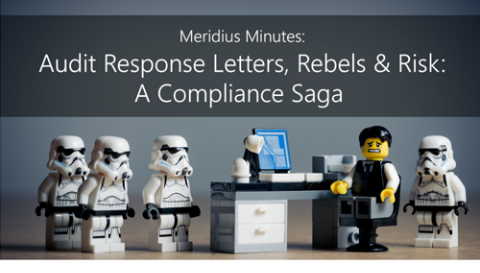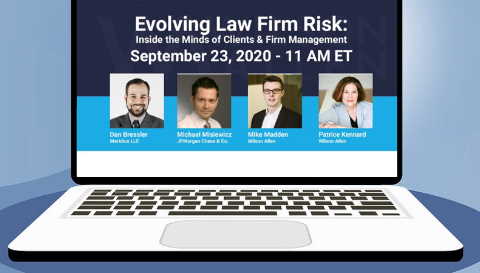Audit Letter Response — ABA Opinion, AICPA Rules & Ex-Partner’s Provocative Perspective
Posted on
I found myself going a bit deeper on audit letters, and thought I’d share some of the interesting resources discovered through that effort, starting with: “Beware The Belief Your Response To Auditor A Colossal Waste Of Time” —
- “Some lawyers may create more potential professional liability over the coming months by drafting a single letter in response to their client’s independent auditor’s request for information than they will throughout the entire rest of the year.”
- “The problem arises primarily because after 40 years of writing these letters to independent auditors, too many attorneys and auditors have concluded the entire process is a colossal waste of time.”
“And yet, outside of a very few attorneys in the large, downtown corporate law firms, few attorneys responding to these requests have ever read the ABA Statement of Policy, much less the American Institute of Certified Public Accountant (AICPA) rules.” - “It should be noted, however, that the accounting profession continues to insist that the ABA Statement of Policy does not control, and it is the AICPA standards that govern the auditor’s request for information.”
- “The ABA Statement provides different illustrative examples of response letters for ‘inside’ and ‘outside’ counsel. In general, the outside counsel may limit its response to particular matters to which it provided substantive attention or representation; whereas the inside general counsel represents he has general supervision for the company’s legal affairs and has ‘reviewed litigation and claims threatened or asserted involving the Company and [has] consulted with outside legal counsel’ where appropriate.”
That article pointed to this one, which was an interesting and provocative opinion piece on the whole matter: “Inside Straight: Stop The Audit Letter Lunacy!” —
- “When I worked at a law firm, I knew that lawyers’ responses to audit letters — in which the firm confirms to auditors the status of litigation pending against a client — were a massive waste of time.”
- “Firm policy dictated that we would speak only pablum in response to audit letters. We would identify each case by name, court, and number; explain that a complaint had been filed; list the causes of action; say where we stood in discovery and whether a trial date had been set; and then say that we didn’t have a clue who would win. (If we thought that the client’s chance of losing was either ‘probable’ or ‘remote,’ we were required to say so. I’m not sure we ever saw such a case.)”
- “Every once in a while, a junior associate would receive an audit letter and write a real response to it — analyzing the lawsuit, the tactics, and who would win. When the powers that be learned about that mistake, there’d be hell to pay: ‘How could you write those things? Didn’t you run this past an audit letter review partner? We don’t actually provide information in those responses, you fool! Never do this again!'”
- “As a partner at a firm, I knew that responding to audit letters was an expensive nuisance: A full-time audit letter assistant cranked out first drafts of responses to the letters. (That’s all she did, eight hours per day, 52 weeks per year — honest.) The appropriate client relationship partner reviewed each draft. An ‘audit letter review partner’ (I had the misfortune to be one of those for four or five years) took another pass at the thing. Only then — after the letter had been stripped of all content — did the response go out the door. That was an awful lot of time and money invested to insure that the firm didn’t accidentally say something.”








